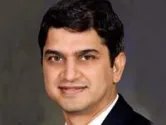Give the currency market some thought
By Shrikant BhatYou are probably exposed to it already even if you did not invest in it intentionally. From holding on to some Singaporean dollar for that weekend getaway to Malacca to owning the stock of a multinational corporation, it is nearly impossible not to be involved in some way in the US$4 trillion (S$4.85 trillion)-a-day global foreign exchange (forex) market.
For some, exchange rates are something to be looked up only a week before departing for a vacation. But for many others, from exporters to expatriates, forex exposure is a practical necessity that cannot be ignored. The “utility” feature of forex is what sets it apart from other investment asset classes. And it potentially influences one’s familiarity and comfort with particular currencies — beyond the usual risk-reward considerations an investor would have for other investment assets.
While your foreign currency needs are likely to be the starting point in determining your appetite for forex investments, individuals with no such requirements still ought to give the currency markets some thought as there are tremendous potential benefits to be reaped. As an asset class, forex can be very rewarding for prudent investors. Apart from outright gains from exchange rate movements, it is a good instrument for portfolio diversification. Forex returns tend to be weakly correlated with other asset classes, which means they are less likely to fall when other markets are in decline.
When thinking about forex, it is worth making a distinction between trading and investing. Traders are concerned with short-term gains, which in forex markets could mean a window of two months to even a day. This is often accompanied by high levels of leverage as exchange rate movements tend to be relatively small compared with those of say, equity prices. Analysing patterns in market activity tends to take precedence over intrinsic valuations.
By contrast, forex investors look past short-term volatility and are more interested in generating income over an extended period. In this case, macroeconomic fundamentals are more important in determining longer-term trends. Forex investors, therefore, need to pay close attention to developments in monetary and fiscal policy, along with economic data and events that could impact the relative strength or weakness of a currency. The investment climate, particularly money flows driven by a large initial public offering or a massive corporate acquisition, is also crucial in figuring out the direction a currency could take.
Certain currency pairs also have their peculiarities. The Australian dollar and New Zealand dollar, for instance, are closely linked to the commodity markets, which are in turn sensitive to China’s economy.
There are many ways to be engaged in the forex market. Direct exposure is the most obvious way to invest in currencies. In its simplest form, this would be taking up a foreign currency time deposit in a bank that pays interest at a rate set at the start of the term.
Alternatively, you may want to consider indirect participation, via investments in foreign currency-denominated assets, like stocks, bonds or even property. For example, buying an apartment in London would give you exposure to the British pound, along with a property market that has yet to recover to its pre-crisis highs.
As with any investment, it is crucial to understand the risks as much as one is drawn to its potential rewards. The pervasiveness of forex means more care may be needed to avoid being overexposed to any one currency. And if one is engaged in trading, leverage rapidly makes returns volatile. This calls for a disciplined approach, which could include limiting the amount of capital invested and implementing strategies to limit losses when they are incurred.














 Advertise
Advertise










